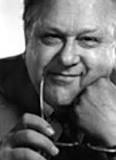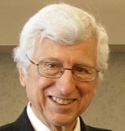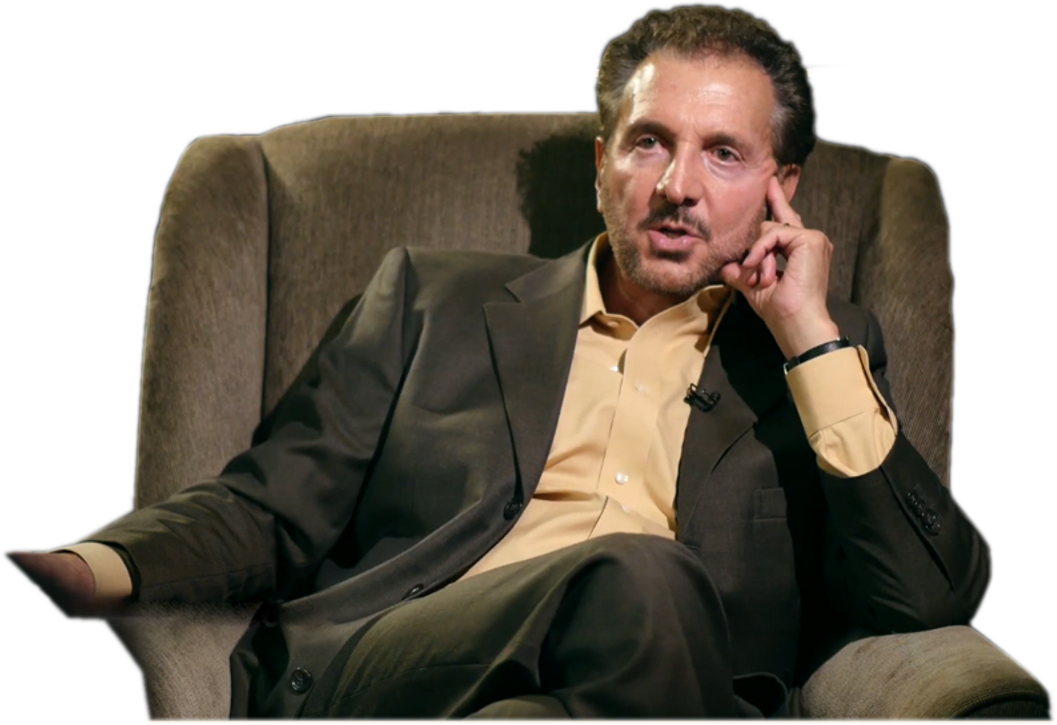
Dr. Joseph Nicolosi
For many years, Dr. Joseph Nicolosi, Sr. assisted over a thousand clients with their goal to reduce their same-sex attractions and explore their heterosexual potential.
A licensed clinical psychologist, he believed that our bodies tell us who we are, and that our bodies have made us for heterosexuality.
Homosexuality, he believed, is an adaptation to trauma; it is rooted in a same-sex attachment problem that leaves the boy alienated from his masculine nature.
Dr. Nicolosi did not label this condition a “psychological disorder.” However, in his view, homosexual development not only works against our biological design, but it leaves repercussions throughout the personality.
Former APA Presidents Lend Their Support

American Psychological Association

Past President of the American Psychological Association, Robert Perloff, Ph.D., endorsed one of Dr. Nicolosi’s books with these words:
“The author has contributed enormously to the sexual literature…his challenging and forceful commentary is must-reading from top to bottom, from stem to stern…The policies and resolutions of organizations such as the American Psychological Association… would be better framed and more truthfully based were these organizations…open to the sentiments promoting Reparative Therapy®.”

Former American Psychological Association President Nicholas Cummings, Ph.D., during his years as Chief Psychologist at Kaiser Permanente in San Francisco, said, “Of the patients I oversaw who sought to change their orientation, hundreds were successful.” [USA Today]
American Psychological Association (APA) Losing Scientific Credibility, Say APA Insiders
In recent years, the psychological professional has become so ideological that it is no longer open to competing ideas. Few members remain who are still willing to speak up; the career cost is simply too high.
For a perspective on this process, we quote Dr. Nicholas Cummings. He was a mainline psychologist, a political liberal, and a promoter of intellectual diversity. Dr. Cummings served as president of the APA before the Association closed itself off to the diversity of competing worldviews.
Client Stories
Featured Articles

Offering Psychological Insight to Men with Same-Sex Attraction.
Sign Up to Our Private E-Mail List for News and Special Content
Frequently Asked Questions
Absolutely not. Reparative Therapy® is trademarked with the US Patent and Trademark Office, and has its own distinctive characteristics. Its creator is Joseph Nicolosi Sr., Ph.D. The methods he used are outlined in his books and his videos, which are available on this website. Dr. Nicolosi occasionally used the term “conversion therapy” decades ago, but the term was twisted to mean an effort to “convert” a client through shaming and force. So in its current meaning, no, Reparative Therapy® is not “conversion therapy.” The client is free to accept or reject the therapist’s viewpoint, and there is no coercion.
The best term to describe Reparative Therapy® is “change-allowing therapy,” with the recognition that change occurs for some, but not all clients, and occurs on a continuum. Current research increasingly recognizes that sexuality is fluid for some people.
Dr. Nicolosi co-authored two peer-reviewed, published studies on the effects of treatments that sought to change unwanted sexual attractions (Nicolosi, Byrd & Potts, 2000; Byrd, Nicolosi & Potts, 2008). This study documented successes with clients who had undergone various therapeutic modalities, including Reparative Therapy®.
References:
Nicolosi, J., Byrd, A. D., & Potts, R. W. (2000). Retrospective self-reports of changes in homosexual orientation: a consumer survey of conversion therapy clients. Psychological reports, 86(3 Pt 2), 1071–1088. https://doi.org/10.2466/pr0.2000.86.3c.1071
Byrd, A. D., Nicolosi, J., & Potts, R. W. (2008). Clients’ perceptions of how reorientation therapy and self-help can promote changes in sexual orientation. Psychological reports, 102(1), 3–28. https://doi.org/10.2466/pr0.102.1.3-28
Sign Up to Our Private E-Mail List for News and Special Content
The Only Official Website of Reparative Therapy®
Welcome to JosephNicolosi.com. I’m Joseph Nicolosi, Jr., the conveniently named son of Dr. Nicolosi. I’m also a clinical psychologist, researcher, and author. Enter your email here to get immediate exclusive access to two free audio chapters of my father’s book, Shame and Attachment Loss.







